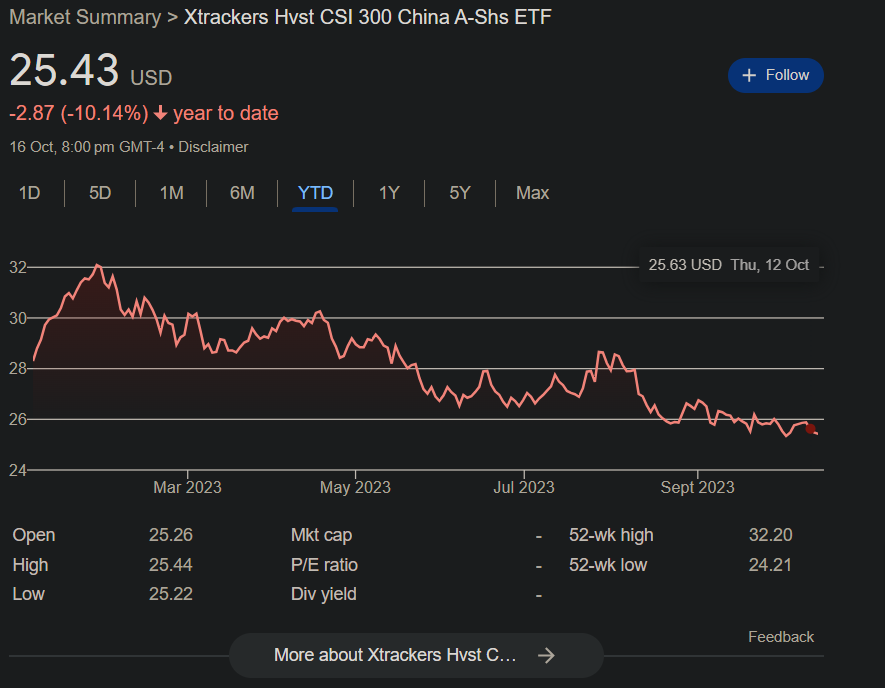ASHR ETF: Investing in Exchange-Traded Funds (ETFs) can be a strategic way to diversify your portfolio and gain exposure to specific sectors, regions, or assets.
One such ETF, ASHR, is designed to track Chinese businesses and should theoretically thrive alongside China’s growing economy. However, in recent years, ASHR has defied all expectations, experiencing a puzzling 40% decline.
In this article, we’ll delve into this perplexing trend, analyze the reasons behind ASHR’s poor performance, and help you understand the risks associated with it.
The ASHR ETF: A Quick Overview
The Xtrackers Harvest CSI 300 China A-Shares ETF (ASHR) is designed to provide investors with exposure to Chinese A-shares, which represent a specific category of Chinese stocks.
These A-shares are restricted to domestic Chinese investors, making ASHR a unique way for international investors to access the Chinese market. The idea is simple: as China’s economy grows, so should ASHR.
China’s Growing GDP vs. ASHR’s Decline
It is an established fact that China’s GDP has been on a remarkable upward trajectory, averaging annual growth rates of 5% to 8% over the past decade.
With such a robust economy, it seems counterintuitive for an ETF like ASHR to show a substantial loss over the same period.

The Causes of ASHR’s Poor Performance
- Trade Tensions and Regulatory Changes: One significant factor contributing to ASHR’s woes is the escalating trade tensions between China and the United States. These tensions have led to increased volatility in Chinese markets and a general wariness among investors. Additionally, China’s regulatory landscape has seen several changes that have impacted certain sectors, such as technology and education, causing investors to reassess their positions in ASHR.
- Currency Risk: Another critical consideration is the exchange rate risk. ASHR is traded in the United States, and its value is subject to fluctuations in the Chinese yuan against the U.S. dollar. A strengthening dollar can lead to a drop in ASHR’s value, even if the underlying assets remain stable.
- Diverse Chinese Market: The ASHR ETF focuses on A-shares, but the Chinese stock market is vast and diverse, with many different sectors. The performance of ASHR is contingent on the performance of the companies it includes, which may not accurately reflect the overall state of the Chinese economy.
- Global Economic Trends: ASHR’s performance can also be influenced by broader global economic trends, such as interest rate changes, geopolitical events, and global market sentiment, which may not directly correlate with China’s GDP.
The ASHR ETF’s underperformance, despite China’s impressive GDP growth, should serve as a cautionary tale for investors. While the concept of investing in China through ETFs is sound, it is essential to understand the specific factors contributing to ASHR’s decline.
Trade tensions, regulatory changes, currency fluctuations, and global economic trends have all played a role in its poor performance.
Before investing in ASHR or any other ETF, make sure to conduct thorough research, assess your risk tolerance, and consider diversifying your portfolio.
Remember, past performance is not always indicative of future results, and it’s essential to stay informed about the dynamic nature of global markets.

